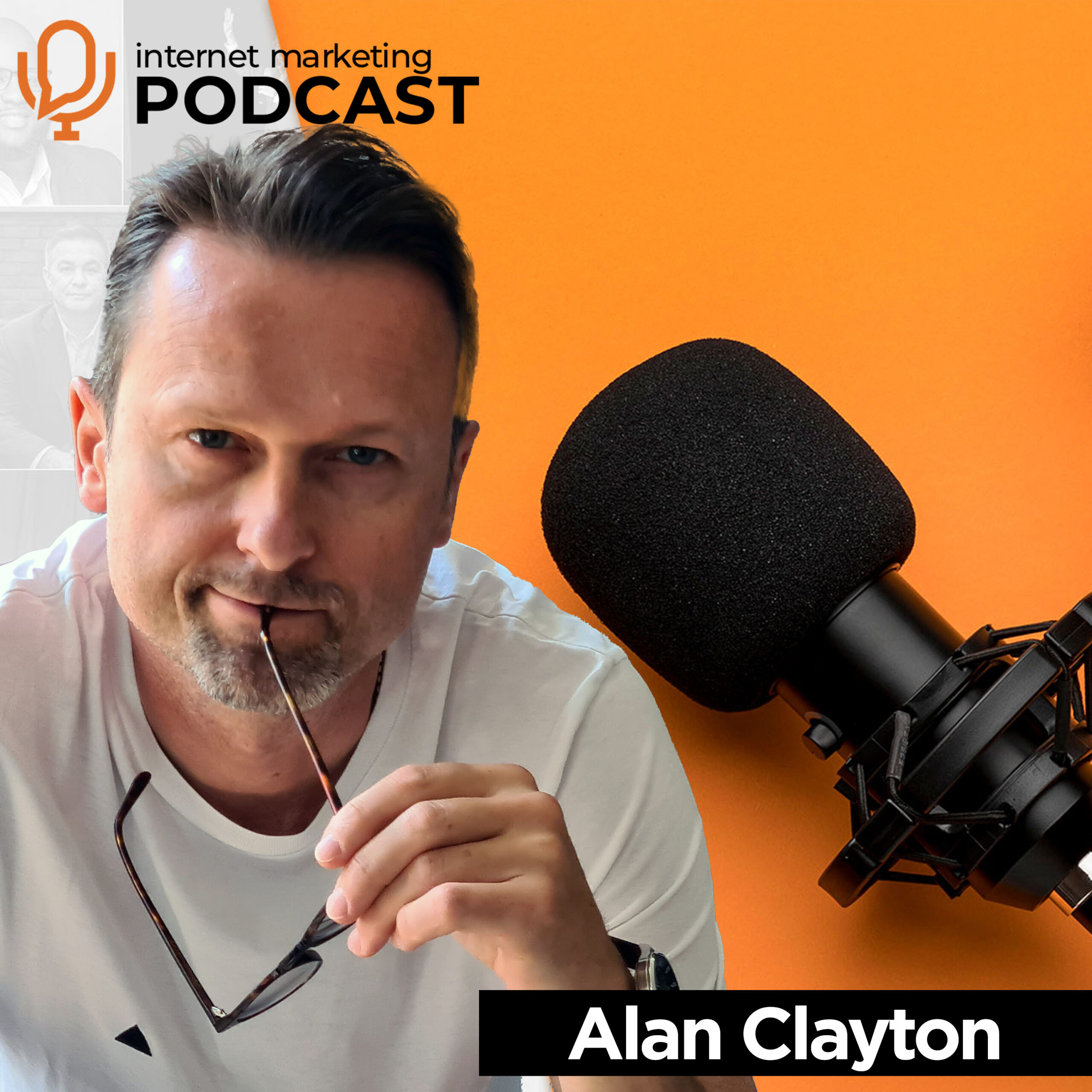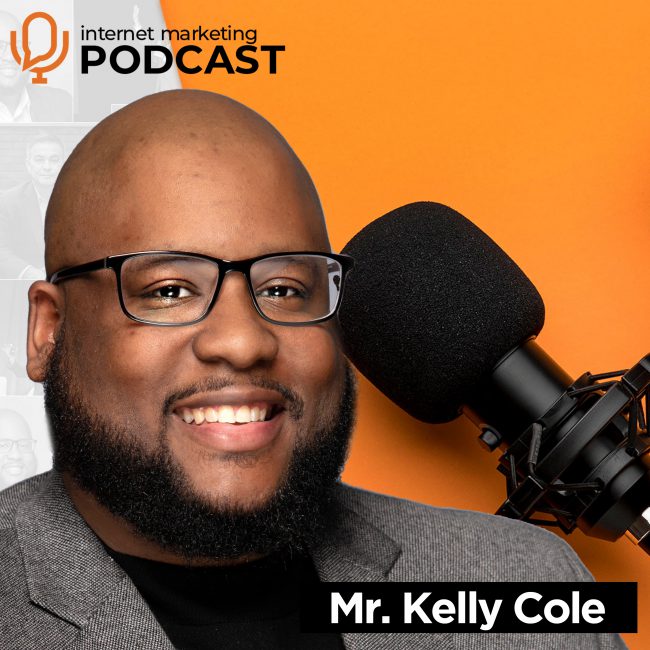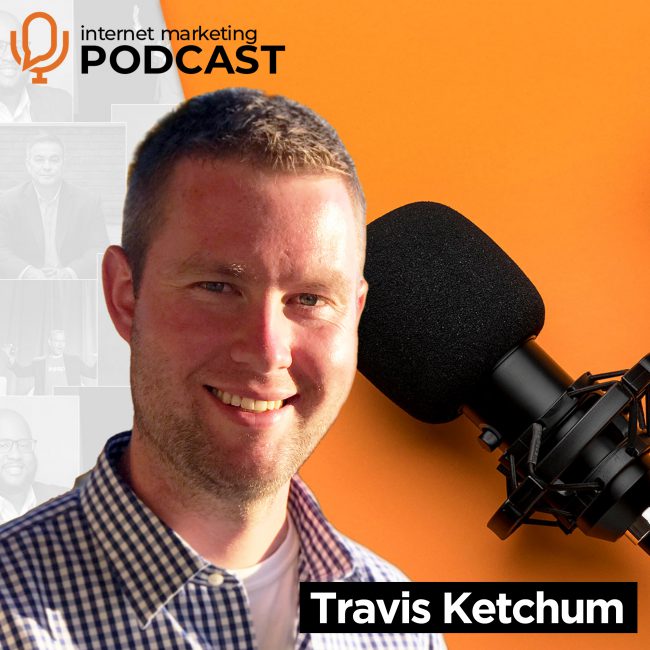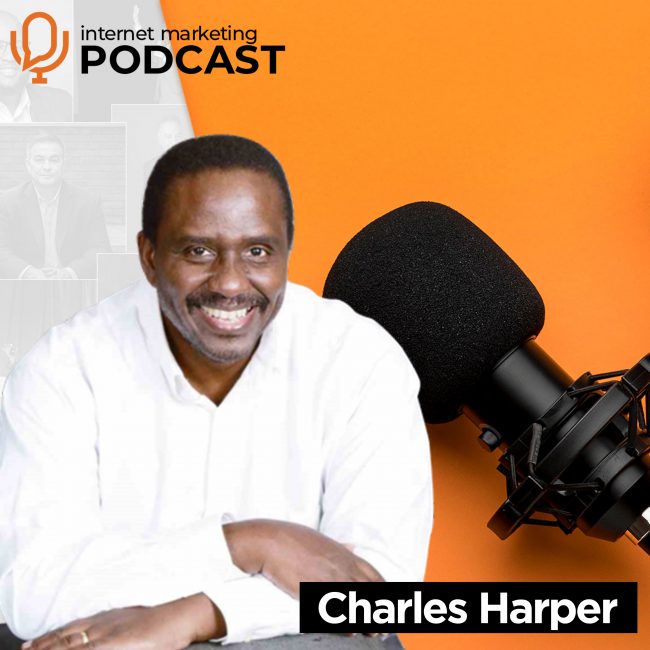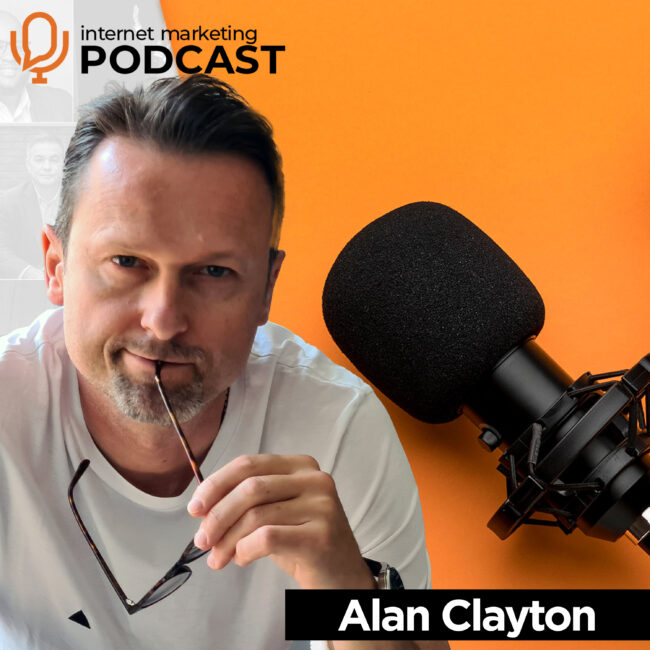
About this Podcast:
Today, we are joined by Alan Clayton, a prominent figure in the world of digital marketing, particularly in the realm of affiliate marketing. Through his platform, Clayton Digital, which you’ll find on Facebook, he mentors aspiring entrepreneurs, helping them to transition from traditional employment to a thriving online business. His courses and resources aim to simplify marketing and provide actionable strategies for achieving online success.
Episode Transcript:
Editor:
Today, we are joined by Alan Clayton, a prominent figure in the world of digital marketing, particularly in the realm of affiliate marketing. Through his platform, Clayton Digital, which you'll find on Facebook, he mentors aspiring entrepreneurs, helping them to transition from traditional employment to a thriving online business. His courses and resources aim to simplify marketing and provide actionable strategies for achieving online success. Alan, welcome. It's great to meet you.
Alan Clayton:
Nice for having me here. Thanks. Thanks. Appreciate it.
Editor:
Well, it's good to have you here. Maybe we could start with just a little bit about your journey from offline to online business.
Alan Clayton:
Well, it's quite a story. Not easy to keep it short. But overall, we all know what happened back in 2020. I used to be in the restaurant business almost all my life. Then, COVID came, and it just smashed my offline business, like my restaurants, completely. I just had no other choice than give it a shot online because, back in the days, we all know. We were in the lockdowns. The only thing that was truly working was the internet. It came natural to me to look into online stuff and give it a shot there.
Editor:
You're in the restaurant business for how long?
Alan Clayton:
Oh, for two decades, I would say. That's what I was doing.
Editor:
Wow. I mean, that's such a transition as well to go from the restaurant business into online marketing. How did you decide to make that transition? What was the pivotal moment for you?
Alan Clayton:
Aside from COVID... I live in Paris. We all know what happened here in the past years, all the problems we had with terrorism, with the street riots and everything. There's always something happening in the city. As a local business owner, you're constantly impacted by these things, see. I was sick of it. I wanted to dive into a business model where, no matter what's going on out there/outside of my door, I could be fully focused on what I was doing. I found that online business is perfect for that. We really have full control around things, and it's just between us and the screen. I definitely went for it. The transition was tough. Nothing to do what I was doing back in the days. But when I saw it working and how it worked for me, it gave me that confidence and that validation that the concept was working. I just went for it, all in.
Editor:
Had you dabbled with online business before leaving the restaurant trade?
Alan Clayton:
No, no, no. Not at all. Not at all. I barely knew that it existed, specifically Facebook, where I am. By the way, facebook.com/allen.clayton.official. That's how you find me. Well, I was never using Facebook for my personal life back in the days. But I was introduced to this opportunity. Although I was a complete newbie back in the days, I just reached out to someone who was two steps ahead of me. I told him, "Hey, just show me how things work." That's where things shifted for me. Only six/seven weeks since I started from scratch, I was able to close my first high-ticket sale. I was blown away when I saw it. I realised back then that I was actually dealing with a real business model. I decided to go all in once again.
Editor:
That's great. I mean, it's one of those businesses, isn't it, where a lot of people think it can be quite tough to get started. It's going to take years to get started. I guess you'd set yourself a bit of a challenge right from the start to go... Again, the restaurant business has closed down because of the pandemic. I need to make this work. Was that motivation for you?
Alan Clayton:
Well, the motivation was feeding my family, basically. I'm going to be straight up with you. Once again, the situation was critical. But I was always intrigued with this. I just never thought that it was for me. See, I always viewed online business as something that was reserved for those IT guys with some heavy technical skills. As it turned out, nothing's further from the truth. It is about skill., but I wasn't using any tech. Until this day, I don't use much tech. My entire income is coming out of my Facebook profile. I've never spent a dime on traffic, see. Also, what gave me the confidence was this quote that I heard from Brian Tracy, one of my favourite business people, who kept repeating that all the business skills are learnable, see. It's something that people need to hear. Talent has nothing to do with it. Everything is learnable. Even the most difficult thing, stuff like coding or... I don't know, something that feels completely strange to you, you could become expert at it if you put your mind to it and you fully commit to it, see. That was my choice.
Editor:
I think one of the interesting points here is the fact that you've chosen to use Facebook primarily as the base for your business: that you've built an entire business now on the Facebook platform. I guess that means that you've not had to get too involved in the tech side of things. How easy did you find it to get started?
Alan Clayton:
I wouldn't say easy. I would say simple, see, which is not the same term. Well, there are not 150 ways how to drive traffic to your offers. Either you pay for it... In that case, it's a paid advertisement, or you do it organically. In both cases, there's a cost involved to it. There's this massive myth online that you can do something for free. It's a myth. The quicker people understand it, the quicker they will start making money. What I preferred, given that there still is that budget, that upfront investment in order to get started, I would rather put that money into my knowledge rather than blowing it on ads, see, because, in this case, you can literally say that money goes down the drain. See, it gives you some results, but it's only temporary. Whereas if you're invested in your skills, well, the skills end up paying your bills, see. That's what I'm seeing. I did heavily invested in myself. But I've never paid for traffic.
Editor:
Amazing.
Alan Clayton:
I strongly advise everyone to take this route, honestly, because it's working.
Editor:
Absolutely. I mean, you've stumbled across something here that does seem to be working for you. Maybe you could tell us a bit about how your business looks now. Obviously, 48 months in terms of the life of setting up a business isn't a huge amount of time. But most businesses maybe can last a couple of years and then disappear away again. You've now built a successful online brand within the last four years. What is your business looking like these days?
Alan Clayton:
Well, I started back in the day as an affiliate, which is a great way to start. It was with a programme that is based in the UK. I learned my first initial skills there. But then, I shifted away to more advanced stuff. I heavily invested into private mentorships to the point where I was able to build my own coaching platform that I fully focused on.
Alan Clayton:
You mentioned affiliate marketing, which itself is already a vast space. There are many disciplines within the affiliate marketing itself. We can narrow it down, which I did. My field, specifically, is the inbound attraction market, and specifically on Facebook because Facebook... No matter what people say, it's still seen like one of those traditional old school social media. But to me, it's by far the most powerful one, see. I only focus on this one. Once you learn what you need to learn, there's a way to be generating a full-time income just by using your Facebook... me is absolutely magical. This is what I do. This is what I teach.
Alan Clayton:
If you want me to get more specific about what I do, if that's your question, I basically teach people how to grab... attention of relevant audience no matter what they're selling, see, because people have this false belief that we can only do that with paid ads. Meaning, we can set the targeting geographically, like the gender that you're targeting, what age, men or women, whatever.
Alan Clayton:
What people don't realise... that we can do almost the same thing organically without ever paying for traffic. No matter what you're selling online, whether it's physical products/digital products... I don't know, perfumes, barbecues, whatever you want, by forcing Facebook's algorithm in a certain way to grab attention of relevant people and raise their interest to the point where they raise their hand on what you have to offer and reach out to you. This is one of those high-income skills that I teach and that are highly powerful, that once you have them down, you don't need to worry about your bills anymore. I can tell you that.
Editor:
That's good to hear. I mean, I think a lot of people are always thinking that Facebook is more just a way of posting pictures of their holidays or the food that they're eating in various restaurants when they go out for a night out. How did you find that initial... Did you get any resistance from family and friends when you set up your online profile? Or do you have a personal profile and then more of a business-leaning profile?
Alan Clayton:
No, no, no. I have a business one. I don't use Facebook for my personal use. No resistance. I'm lucky enough to have the support of my family for doing that. People might be sceptical around you, which is only temporary thing. I can tell that. Then, once things start working for you, you'll be surprised how quickly they start being interested in what you're doing and looking into what you're doing because it's pretty magical. But that's how online looks like. There's an effort to be put upfront in order to see the payoff further down the line. It's better to be supported. But it's all about how bad people really want it, but it's definitely learnable.
Editor:
Okay. I guess the next question I have is more to do with your initial success/the thing that gave you that motivation that... "Yep, this is a business that is not only workable but also sustainable long term." When did you get that moment? When did you think, "Okay. Actually, I'm all in on this. I know this is the thing for me to do"?
Alan Clayton:
This confidence honestly comes from results. Even back in the days when I didn't have results, I still had people around me who were having, see. I knew that this wasn't the myth because, like I said, as I signed up to more private mentorships, I had regularly on Zooms... And even to this day, I have people in front of me. I'm having you in front of me, people who are making $50/80,000 per month by doing what I'm doing, see. They share those things with you. I see in their messenger. I see in their content. I see in their system. There's no doubt that we... get that far.
Alan Clayton:
But one thing that those people have in common is that they're all heavily invested in their skills. Just one of my mentors that I've been dealing with right now... 200,000 [inaudible 00:11:51]. You don't have to take it that far. But what I personally found... that every time I invested in a mentor, my results just 10Xed. It always pays off. But that's the beauty of putting that money into your knowledge. It always ends up paying off. If it's not in two months, then it's in six months. But there's always ROI. Massive ROI. I keep doing that. See, I literally feel bad when I'm not mentored, if I say that now.
Editor:
No, because I think that's the key that a lot of people tend to forget. When they don't see results, it's because they spend a lot of time perhaps learning but little time doing. You seem to be quite disciplined, Alan, to take the knowledge, if you like, from the mentors and then apply that to your business. Is that a fair thing to say?
Alan Clayton:
Yes. Obviously, the work ethics matter a lot. Online business is all based on consistency. It's very difficult to be consistent with something that you don't fully trust or that you constantly doubt. One thing that is really difficult for people when they shift from offline to online, which is what I did myself, and that's where I'm guiding people, is that offline, in the real world, where you used to have instant gratification... No matter what you do, when you get a job, you know that you get paid at the end of the month or the end of the week. No matter what action you take, you see that payoff at some point. Whereas online, there's no such thing. But that gratification is delayed, see. This is something that people need to realise.
Alan Clayton:
Mindset-wise, if you are not guided, it's very difficult to put, upfront, so much effort for the long term without actually seeing it paying off. It might feel, in the beginning, pretty vain, see. You're doing something, and you might be wondering, "Is it even making sense what I'm doing?" See, but this is why you need that guidance of someone who did that, who went that path before you. Otherwise, you keep doubting, and you end up giving up, see. This is what I do, see. Doing like 90% of people. Vast majority, basically.
Editor:
Your business, as you say, is based in taking offline into online. My question was going to be... And maybe this question is still relevant, but it's what have you learned from the restaurant industry that you've been able to take into your online business.
Alan Clayton:
Especially one thing that I will say here is the fact that when you are or when you were in this local business, brick-and-mortar thing, you had that background. You now have that full understanding that, no matter what business you're starting, whether it's offline or online, there is some upfront investment. You cannot make/work in something for free. I see this difference when I deal with people who come from the nine-to-five world, people who are working for the salary as opposed to people who have this local business background like myself. These are two completely different mindsets, see. People who work for a salary... They have much more hard time accepting that in order to reap those benefits online, they first need to put something into it, see. I didn't have that, see. Coming from offline, it was no surprise for me that I had to put up front a few thousands of dollars to get this going. Whereas for people who are those nine-to-fivers, I would say it sounds really strange still. That's one side of things.
Alan Clayton:
The other thing is everything that we see on YouTube. Honestly, it's just so damaging for this massive misconception that people have about affiliate marketing and that they can start with zero. I can ask just anyone. "Go on YouTube, guys, and type affiliate marketing for free." You will see the thousands of videos that are going to jump right at you. It's full of lies. This is where that misconception and that myth, starting for free, comes from, see. Then, people, when they meet someone like me, and they see the reality of things... They're surprised. "Well, we were told on YouTube that we can start for free." No, guys. No. You cannot. Honestly, you cannot. It's in business like any other.
Editor:
All businesses need a level of investment, seed money as it's sometimes called. I think what's fascinating here is that you have built your business on the Facebook platform. That I guess does come with some risks because, as you say, it's not your own website. It is built on the infrastructure put together by Mark Zuckerberg and his team. Does that concern you? Or do you actually find that you basically set up your shop in a very busy mall, if you like, shopping with lots of people? There's lots of people already on Facebook. You're not having to drive traffic. It's already there. What is your take on that, Alan?
Alan Clayton:
Well, I'd be lying if I told you that it's not worrying me because the truth is socials are very cool, but we're guests there. We can be deleted. We can disappear. We don't own it. But they're a highly effective [inaudible 00:17:22]. I personally teach workarounds to secure things. But the truth is, my account... I'm telling this straight up. It's probably one of the most cloned accounts out there. There's just hundreds of cloned accounts of my name. This is why I'm repeating, guys, check the URL. Make sure that you're talking to the real Alan Clayton, which is alan.clayton.official. If you see in the URL some numbers, it's not me. If you see anyone calling to Bitcoin or... I don't know, any trading opportunity, you're not talking to me. I don't do any of this. I'm just an online marketer.
Alan Clayton:
People will tell you, "Yeah. A website... at least you own it." But it's just so much more difficult to get traffic to a website than it is to get it to a social media account, see. We no longer need websites for affiliate marketing now in 2024. It's completely outdated, see. Everything is run on socials. Without going into details, there are ways to avoid it/to secure your presence still by building a list. Let's say, if I get erased, my email list... which is the only traffic that we truly own, just like Russell Brunson repeats it in his books, the email traffic. If I send an email, I can move my audience instantly on a different social platform or on a new account. See, it's one of those ways how to secure this, if that answers your question.
Editor:
Yeah, absolutely. I think, as well, the interesting thing is you are focused purely on Facebook because, obviously, there's a lot of noise in the marketplace about TikTok or Twitter or X as it's become now. But you are staying loyal to the Facebook platform, Alan. Is that right?
Alan Clayton:
Yeah. I explain that. That is one massive advice or tip that I can tell the people because this is something that I was explained from day one. Obviously, there are many social media. People have this feeling like they need to be all over the place. They need to do a little bit of Facebook, a little bit of Instagram, a little bit of TikTok, or YouTube, LinkedIn, Twitter, whatever. The more they spread their attention, the more they spread themselves thin, and the less likely it is that they will get traction anywhere. Instead, focus on one. Give it your full attention because, trust my words, two or three billions of users of Facebook... There's more than enough for you. You don't need to go anywhere else. I was one of those people who were explained this from day one. I went all in. Facebook. I just moved away from all the rest.
Editor:
The only place we can find you, as you say, is on Facebook. Just as we wrap this up, Alan, give us that URL again just to be absolutely clear because, as you say, your account has been cloned. There's lots of people that have taken your image and your business, if you like, and replicated it in maybe not-so-useful ways. Where do we need to head to?
Alan Clayton:
Facebook.com, obviously, /alan.clayton.official. That way, you know you're truly talking to me. If you still have doubts, I can even make a short video showing my face live if you actually need to, but everything is well explained in the bio of my profile. You can join my free private community. That's probably the best way to connect with me and to see my work from the inside because I run several Facebook communities. This one is free to join. I give it massive attention/a lot of effort into it. I go live in there every single week. I provide a lot of value, so feel free to join my free Facebook group. The link is right in the bio of that profile.
Editor:
It's an incredible resource as well. Definitely worth checking out. Lots of really informative videos, short videos, maybe some longer videos in there as well, so that there's something for everyone. Absolutely worth checking out. Alan, listen. Thank you so much for your time today. It's been an absolute pleasure chatting with you. We wish you all the success moving forward.
Alan Clayton:
Thank you.
Editor:
Maybe we can catch up again soon.
Alan Clayton:
Thanks.
Editor:
Thanks again.
Alan Clayton:
Thank you. You're welcome. Have a great day.
